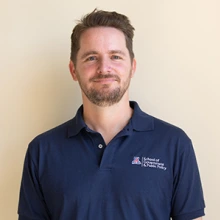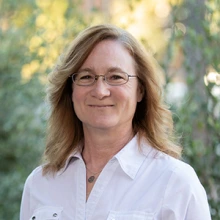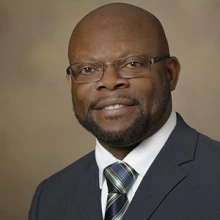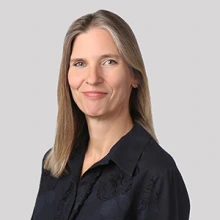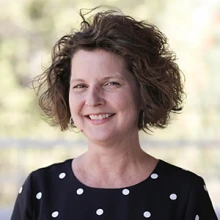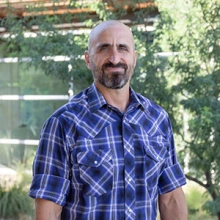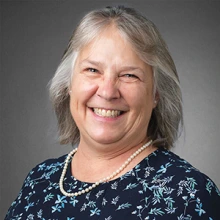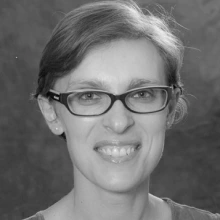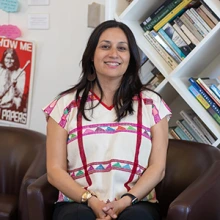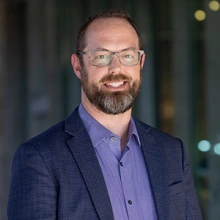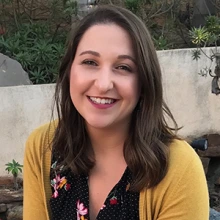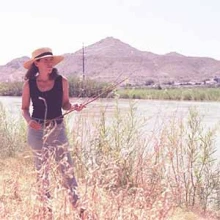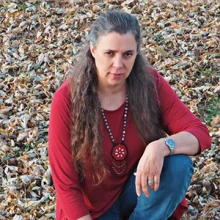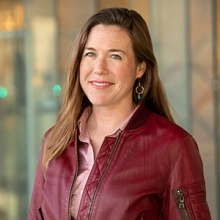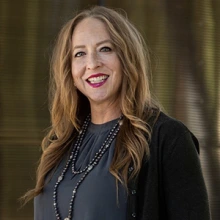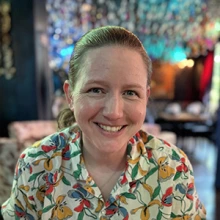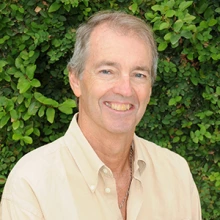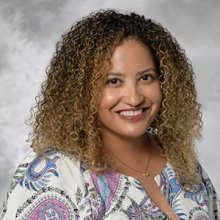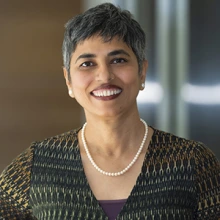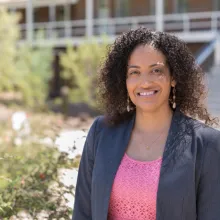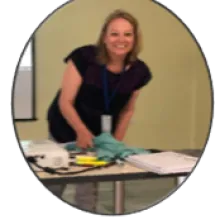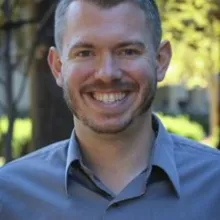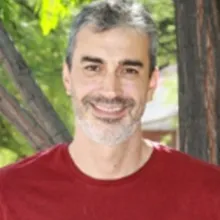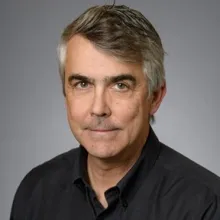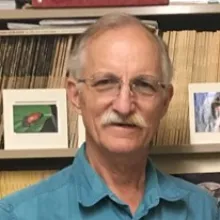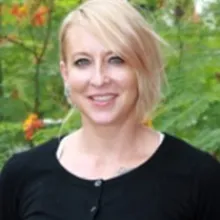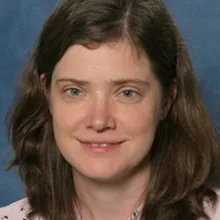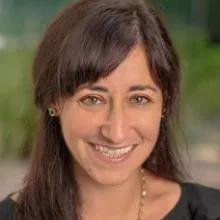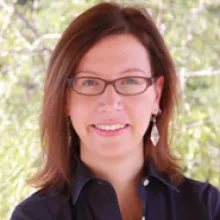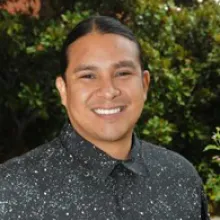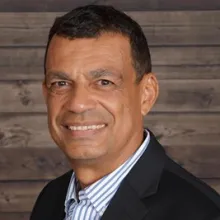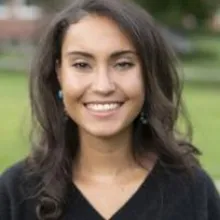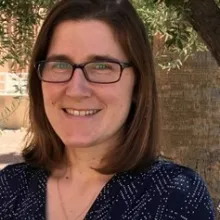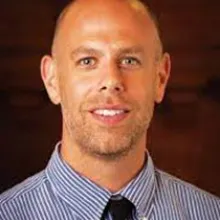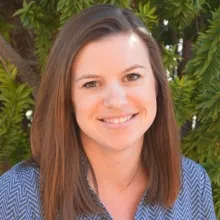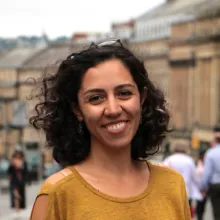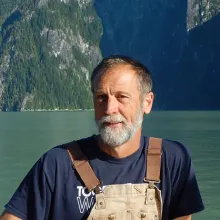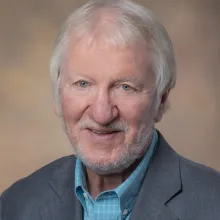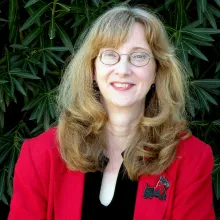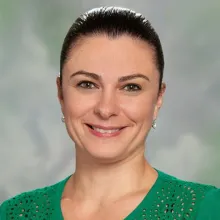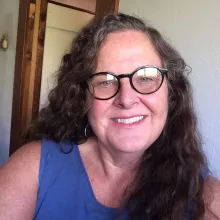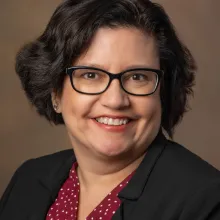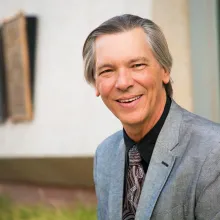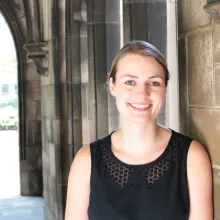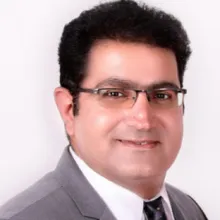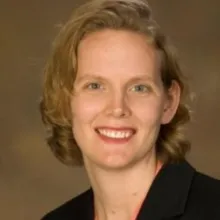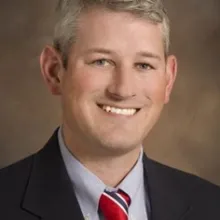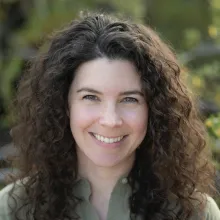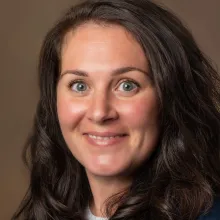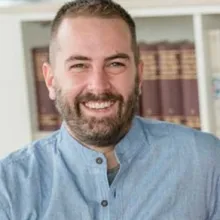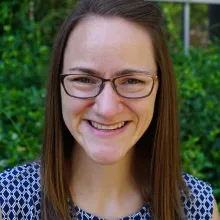2025 University of Arizona Distinguished Faculty Awards
We are proud to honor 27 exceptional faculty and mentors whose outstanding contributions have been recognized through 14 prestigious University-wide awards. These eminent faculty have been chosen for their remarkable achievements in research, teaching, service, mentoring, administration or cooperative extension by committees composed of distinguished faculty.
University Distinguished Awards
University Distinguished Professor Awards
University Distinguished Outreach Faculty Award
Midcareer and Early Career Distinguished Faculty Awards
Kristopher Klein
Associate Professor, Planetary Sciences & Lunar and Planetary Laboratory (LPL), College of Science
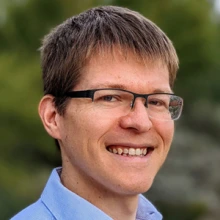
Dr. Klein's research focuses on studying fundamental plasma phenomena that governs the dynamics of systems within our heliosphere as well as more distant astrophysical bodies. He has particular interest in identifying heating and energization mechanisms in turbulent plasmas, such as the Sun's extended atmosphere known as the solar wind, as well as evaluating the effects of the departure from local thermodynamic equilibrium on nearly collisionless plasmas which are ubiquitous in space environments. As part of this work, Prof. Klein is a co-developer of the Arbitrary Linear Plasma Solver (ALPS) numerical dispersion solver, an open source code used for quantifying the behavior of such non-equilibrium systems.
These systems are studied with a combination of analytic theory and numerical simulation, including large-scale nonlinear turbulence codes such as AstroGK, HVM, and gkeyll. These theoretical predictions are compared to in situ observations from spacecraft including NASA's Wind, MMS and Parker Solar Probe mission, as well as the upcoming HelioSwarm mission, which will fly nine spacecraft between the Earth and moon to characterize the transport and dissipation of turbulent energy in space plasmas. By comparing theory with local plasma measurements, we aim to answer a variety of questions about the behavior of plasma in our solar system.
Dr. Klein is the Deputy Principal Investigator of NASA’s HelioSwarm mission to study plasma flowing out from the Sun. He has published 118 Articles and has an h-index of 38; his papers have accumulated over 4700 citations.
Dr. Klein has advised multiple graduate students, two of whom have successfully defended their Ph.D.s at LPL. He advised a postdoctoral research associate who has since become a research scientist, and has taught four courses at U of A, ranging from introductory 100-level courses through advanced 500-level graduate courses.
Dr. Klein has been the recipient of both NASA’s Early Career Investigator Program Award and the American Physics Society’s Landau and Spitzer award for Outstanding Contributions in Plasma Physics. In 2024, Dr. Klein was awarded the Harvey Prize from the American Astronomical Society, in recognition of significant contributions in solar physics research made by an early career scientist. Dr. Klein was awarded for his outstanding contributions to the understanding of space plasma turbulence.
Teaching Awards
Ellen Bledsoe
Assistant Professor of Practice, Natural Resources and the Environment, College of Agriculture, Life and Environmental Sciences
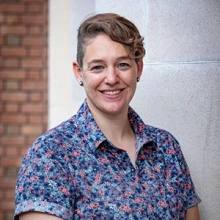
Dr. Ellen Bledsoe is an Assistant Professor of Practice of in the School of Natural Resources and the Environment (SNRE) at the University of Arizona. She teaches a broad range of ecology courses with data science components. Ellen is trained as a community ecologist; during her PhD at the University of Florida, she studied long-term dynamics of desert rodents in the Chiricahua Mountains. Her passion for engaging with data science in ecology blossomed from working with over 4 decades of rodent data during her dissertation.
After graduating with her PhD in 2020, Ellen spent a year at the University of Regina in Saskatchewan as a postdoctoral teaching and research fellow with the Living Data Project, a Canada-wide initiative to train ecology and evolutionary biology graduate students in data science and reproducible workflows. In this role, she developed and taught classes in data science, oversaw “data rescue” internships, and facilitated graduate student working groups. Through this work, she published an article on best practices in data rescue, or saving languishing data and making it available for use.
In her current role, Ellen teaches courses ranging from a large enrollment general education course to a required course for natural resource majors, to a newly developed graduate course focused on teaching computer programming skills and best practices in reproducible and open science. She is a member of curricular committees at the School and College level and engages in various data science education committees and programs throughout the university and beyond. Ellen also currently leads the SNRE Inclusive Excellence Committee and will serve as the interim Associate Director of Undergraduate Advancement for SNRE.
While much of her focus remains on teaching, Ellen continues to conduct research, with an emphasis on inclusive data science pedagogy in the life sciences. Currently, Ellen is working with 2 undergraduates to clean and integrate community-collected datasets into the National Phenology Network’s databases. She is currently a co-PI on an NSF “Harnessing the Data Revolution” grant to introduce computer programming at the general education level, which has led to the development of her course, “Dealing with Data in the Wild.” She also serves on the steering committee of the Biological & Environmental Data Education (BEDE Network), which provides training to faculty members for integrating data science into undergraduate biology courses.
Daniel Charbonneau
Assistant Professor of Practice, School of Information, College of Information Science
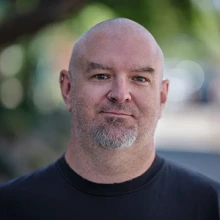
Daniel Charbonneau is a behavioral ecologist studying social insect behavior with expertise in biostatistics, computer vision and object tracking, and applying data engineering and data science methods to biological questions. Broadly, his research aims to understand how groups function, and often excel, because of and in spite of the individuals that compose them. He is interested in how work is allocated in decentralized complex systems, particularly in the role of ‘task-less’ workers (‘inactive’ and ‘interactive’ workers) in task allocation, and how colonies adjust workers to workload in dynamic environments.
Charbonneau has a PhD in Entomology from the University of Arizona. Prior to joining the U of A’s College of Information Science, he served as Postdoctoral Researcher at ASU at the University of Pennsylvania.
Mentoring Awards
Past Awardees
2024 University of Arizona Distinguished Faculty Awards
University Distinguished Awards
University Distinguished Professor Award
- Suresh Garimella, Professor, Aerospace and Mechanical Engineering, College of Engineering | President, The University of Arizona.
- Robert Fleischman, Professor, Civil and Architectural Engineering and Mechanics, College of Engineering
University Distinguished Outreach Faculty Award
Marcela Vásquez-León, Director, Latin American Studies, Professor, School of Anthropology, College of Social and Behavioral Sciences
Distinguished Head/Director’s Award
- Buell Jannuzi, Head and Professor, Department of Astronomy and Director, Steward Observatory, College of Science
- Chris Castro, Professor and Interim Head, Hydrology and Atmospheric Sciences, College of Science
University Distinguished Innovation & Entrepreneurship Award
- Joseph Valacich, Professor and Muzzy Endowed Chair, Management Information Systems, Eller College of Management
University Faculty Service Award
- Laura Hollengreen, Associate Professor and Associate Dean, Academic Affairs, School of Architecture, College of Architecture, Planning and Landscape Architecture
- Leila Hudson, Associate Professor, School of Middle Eastern and North African Studies, College of Social and Behavioral Sciences
Henry and Phyllis Koffler Prize
- Lisa Elfring, Specialist, Biology Education, Molecular and Cellular Biology & Vice Provost for Assessment, Teaching and Technology, University Center for Assessment, Teaching, and Technology
Midcareer and Early Career Distinguished Faculty Awards
Distinguished Scholar Award
- Elise Gornish, Associate Specialist, Restoration Ecology, School of Natural Resources and the Environment, College of Agriculture, Life and Environmental Sciences
Early Career Scholar Award
Harris Kornstein, Assistant Professor, Public & Applied Humanities, College of Humanities
Michelle Berry, Assistant Professor, History, College of Social and Behavioral Sciences
Teaching Awards
Gerald J. Swanson Prize for Teaching Excellence
- Afrooz Jalilzadeh, Assistant Professor, Systems and Industrial Engineering, College of Engineering
- Carrie Langley, Assistant Professor of Practice, Sociology, Social & Behavioral Sciences
- Teresa Rosano, Assistant Professor of Practice, School of Architecture, College of Architecture, Planning & Landscape Architecture
- Hal Tharp, Associate Professor, Electrical and Computer Engineering College of Engineering
University of Arizona Foundation Leicester and Kathryn Sherrill
Robert Stephan, Associate Professor of Practice, Religious Studies and Classics, Humanities
Provost Award for Innovation in Teaching
Wendy Moore, Associate Professor, Entomology, College of Agriculture, Life and Environmental Sciences
Sarah McCallum, Assistant Professor, Religious Studies and Classics, College of Humanities
Samantha Orchard, Associate Professor, School of Plant Sciences, College of Agriculture, Life and Environmental Sciences
Distinguished Mentor Award
Daniela Triadan, Professor, School of Anthropology, College of Social and Behavioral Sciences
Graduate Student Peer Mentors Award
University of Arizona History Graduate Association
Andrew Wickersham, President (student)
Liliana Toledo Guzman, Vice-President (student)
Johanne Harrigan, Secretary (student)
Zelin Pei, Treasurer (student)
Samantha Goodrich, Marketing (student)
Mentoring Future Scholars Award
Hayriye Kayi-Aydar, Associate Professor, Department of English, College of Social and Behavioral Sciences
Jessica Rainbow, Associate Professor, Department of Advanced Nursing Practice and Science, College of Nursing
2023 University of Arizona Distinguished Faculty Awards
University Distinguished Awards
University Distinguished Professor Award
- Meg Lota Brown, Professor, Department of English, College of Social and Behavioral Science
University Distinguished Outreach Faculty Award
- Kelly Simmons-Potter, Professor, Electrical and Computer Engineering, College of Engineering
- John Palumbo, Research Scientist, Entomology, College of Agriculture and Life Sciences
University Faculty Service Award
- Wolfgang Fink, Associate Professor, Electrical and Computer Engineering, Biomedical Engineering, and Inaugural Edward & Maria Keonjian Endowed Chair, College of Engineering
- Paul Wagner, Associate Professor of Practice, Cyber, Intelligence, and Information Operations, College of Applied Science & Technology
Distinguished Head/Director’s Award
- Diane Austin, Director, School of Anthropology, College of Social and Behavioral Sciences
University Distinguished Innovation & Entrepreneurship Award
- Joyce Schroeder, Professor & Department Head, Molecular and Cellular Biology, College of Science
Henry and Phyllis Koffler Prize
- Henk Granzier, Professor, Cellular and Molecular Medicine, College of Medicine
Midcareer and Early Career Distinguished Faculty Awards
Distinguished Scholar Award
- David Baltrus, Associate Professor, Plant Sciences, College of Agriculture and Life Sciences
- Mónica Ramírez-Andreotta, Associate Professor, Environmental Science, College of Agriculture and Life Sciences
- Michael Marty, Associate Professor, Chemistry & Biochemistry, College of Science
Early Career Scholar Award
- Yuanyuan (Kay) He, Assistant Professor, Fred Fox School of Music, College of Fine Arts
- Anna Josephson, Assistant Professor, Agricultural and Resource Economics, College of Agriculture and Life Sciences
- Andrew Curley, Assistant Professor, School of Geography, Development and Environment, College of Social and Behavioral Sciences
- Andrew Paek, Assistant Professor, Molecular & Cellular Biology, College of Science
- Alex Craig, Assistant Professor, Aerospace and Mechanical Engineering, College of Engineering
- Jeehey Kim, Assistant Professor, School of Art, College of Fine Arts
University Early Career Innovation & Entrepreneurship Award
- Tsu-Te “Judy” Su, Assistant Professor, Biomedical Engineering, College of Engineering
Teaching Awards
Gerald J. Swanson Prize for Teaching Excellence
- Amy Graham, Associate Professor of Practice, Chemistry & Biochemistry, College of Science
- Darin Knapp, Associate Professor of Practice, Norton School of Human Ecology, College of Agriculture and Life Sciences
- Patrick Baliani, Professor of Practice, W.A. Franke Honors College
- Maria Letizia Bellocchio, Associate Professor of Practice, French and Italian, College of Humanities
- Susan Holland, Assistant Professor of Practice, Communication, College of Social and Behavioral Sciences
University of Arizona Foundation Leicester and Kathryn Sherrill
- Jennifer Wolfe, Associate Professor, Mathematics, College of Science
Provost Award for Innovation in Teaching
- Jennifer Carlson, Associate Professor, Sociology, College of Social and Behavioral Sciences
- Lani “Tori” Hidalgo, Associate Professor of Practice, Chemistry and Biochemistry, College of Science
- Susan Holland, Associate Professor of Practice, Communication, College of Social and Behavioral Sciences
- Kristy Slominski, Associate Professor, Religious Studies and Classics, College of Humanities
- Aileen Wong, Associate Clinical Professor, Speech Language and Hearing Sciences, College of Science
Distinguished Mentor Award
- Judith Gordon, Associate Dean of Research, Professor, College of Nursing
Graduate Student Peer Mentor Award
- Romy Cerón Canché, PhD Candidate, Spanish and Portuguese, College of Humanities
Faculty Peer Mentor Award
- Jeannette Hoit, Professor, Speech, Language, and Hearing Sciences, College of Science
Mentoring Future Scholars Award
- Kevin Gosner, Associate Professor, History, College of Social and Behavioral Sciences
- Lillian Gorman, Assistant Professor, Spanish Sociolinguistics, College of Humanities
2022 University of Arizona Distinguished Faculty Awards
University Distinguished Awards
University Distinguished Professor Award
- Kenneth Johns, Professor, Physics, College of Science
University Distinguished Outreach Faculty Award
- Paul Meléndez, Professor, Management & Organizations, Eller College of Management
- Beverly Seckinger, Professor, School of Theatre, Film & Television, College of Fine Arts
Distinguished Scholar Award
- Rebecca Mosher, Associate Professor, Plant Sciences, College of Agriculture and Life Sciences
- Daniel Martínez, Associate Professor, Sociology, College of Social and Behavioral Sciences
- Weigang Wang, Associate Professor, Physics, College of Science
Early Career Scholar Award
- Molly Gebrian, Assistant Professor, Fred Fox School of Music, College of Fine Arts
- Thomas Gianetti, Assistant Professor, Chemistry and Biochemistry, College of Science
- Tammi Walker, Associate Professor, James E. Rogers College of Law
- Ashley Dixon, Assistant Agent, Gila County Cooperative Extension, College of Agriculture and Life Sciences
- David Enard, Assistant Professor, Ecology and Evolutionary Biology, College of Science
University Distinguished Innovation & Entrepreneurship Award
- Jeffrey Pyun, Professor, Chemistry and Biochemistry, College of Science | College of Medicine Tucson
University Early Career Innovation & Entrepreneurship Award
- Thomas Gianetti, Assistant Professor, Chemistry and Biochemistry, College of Science | College of Medicine Tucson
Distinguished Head/Director’s Award
- Karen Seat, Head, Religious Studies and Classics, College of Humanities
- John Galgiani, Director, Valley Fever Center for Excellence, College of Medicine Tucson
Henry and Phyllis Koffler Prize
- Ana Cornide, Associate Professor of Practice, Spanish and Portuguese, College of Humanities
Teaching Awards
Gerald J. Swanson Prize for Teaching Excellence
- Na Zuo, Assistant Professor of Practice, Department of Agricultural and Resource Economics, College of Agriculture and Life Sciences
- Dean Papajohn, Professor of Practice, Civil and Architectural Engineering and Mechanics, College of Engineering
- Hank Stratton, Assistant Professor, School of Theatre, Film and Television, College of Fine Arts
- Lisa Dollinger, Associate Professor of Practice, Chemistry and Biochemistry, College of Science
- Suzanne Dovi, Associate Professor, School of Government and Public Policy, College of Social and Behavioral Sciences
University of Arizona Foundation Leicester and Kathryn Sherrill
- Liudmila Klimanova, Assistant Professor, Russian and Slavic Studies, College of Humanities
Provost Award for Innovation in Teaching
- Michael Bogan, Assistant Professor, School of Natural Resources and the Environment, College of Agriculture and Life Sciences.
- Crista Coppola, Department of Animal & Comparative Biomedical Sciences, College of Agriculture & Life Sciences
- Erika Gault, Assistant Professor, Africana Studies Program, College of Humanities
2021 University of Arizona Distinguished Faculty Awards
University Distinguished Awards
GRADUATE TEACHING AND MENTORING AWARDS
THE MARGARET M. BRIEHL AND DENNIS T. RAY FIVE STAR FACULTY AWARD
THE GERALD G. SWANSON PRIZE FOR TEACHING EXCELLENCE
THE HENRY & PHYLLIS KOFFLER PRIZE
UNIVERSITY OF ARIZONA FOUNDATION LEICESTER & KATHRYN SHERRILL CREATIVE TEACHING AWARD
DISTINGUISHED SCHOLARS AWARD
EARLY CAREER SCHOLARS AWARD
OUTSTANDING POSTDOCTORAL SCHOLAR AWARD
EXCELLENCE IN POSTDOCTORAL MENTORING AWARD



